Introduction
How To Feed Parakeets Fruits And Vegetables: Parakeets, also known as budgerigars, are charming and intelligent birds that make wonderful companions. To ensure their health and well-being, it’s essential to provide them with a balanced and nutritious diet. While seeds and pellets are crucial elements of their food, incorporating fresh fruits and vegetables into their diet can offer a range of health benefits and add variety to their meals.
Feeding parakeets fruits and vegetables is not only a way to meet their nutritional needs but also an opportunity to enrich their lives and promote their overall happiness. We will explore the importance of including fresh produce in your parakeet’s diet, the types of fruits and vegetables that are safe and nutritious for them, and how to introduce these foods to your feathered friend.
Discovering how to feed parakeets fruits and vegetables is an important step in becoming a responsible and attentive parakeet owner. By understanding their dietary requirements and preferences, you can enhance their quality of life and help them thrive. So, let’s dive into the world of parakeet nutrition and explore the best practices for incorporating fresh fruits and vegetables into their daily meals.
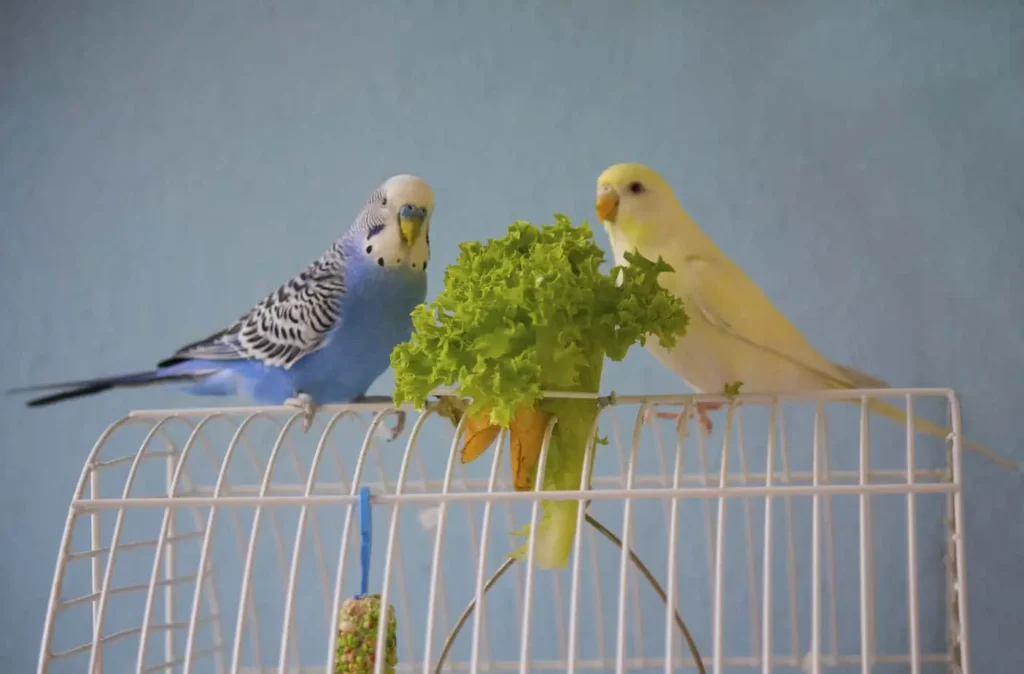
Can parakeets eat fruits and vegetables?
Fruits and vegetables are part of the standard diet for pet parakeets.
Yes, parakeets can and should eat fruits and vegetables as part of their diet. Including fresh produce in their meals is essential to provide them with a well-rounded and nutritious diet. While seeds and pellets are essential components of a parakeet’s food, fruits and vegetables offer a variety of vitamins, minerals, fiber, and antioxidants that contribute to their overall health and well-being.
Fruits and vegetables are not just a source of nutrition but also provide mental stimulation and enrichment for parakeets. The act of foraging for different textures and flavors keeps their minds active and engaged, preventing boredom.
It’s important to remember that fruits and vegetables should complement, not replace, their regular pellet-based diet. Offering a diverse range of produce is the key to a balanced diet for parakeets. However, introducing new foods can be a gradual process, as some parakeets may be hesitant to try unfamiliar items.
What fruits and veggies can you feed a parakeet?
What vegetables can parakeets eat?
- Bok choy.
- Broccoli stems and florets.
- Brussel sprouts.
- Butternut squash – parakeets like parrots all originating from the tropics, adore tropical fruits.
- Cabbage.
- Carrots.
- Celery and its leaves.
- Cucumber.
Parakeets can safely consume a variety of fruits and vegetables. Some safe options include:
Fruits:
- Apples (remove seeds)
- Pears (remove seeds)
- Bananas
- Berries (strawberries, blueberries, raspberries)
- Oranges (in moderation due to high acidity)
- Grapes (sliced in halves or quarters)
- Kiwi
- Papaya
- Melon (cantaloupe, honeydew)
- Mango (remove pit)
Vegetables:
- Leafy greens (spinach, kale, romaine lettuce)
- Carrots (chopped into small pieces)
- Broccoli (small florets)
- Bell peppers (green, red, yellow)
- Cucumber (sliced)
- Zucchini (sliced or grated)
- Peas (cooked and cooled)
- Corn (cooked and cooled)
- Sweet potatoes (cooked and cooled)
- Asparagus (steamed and cooled)
Always wash fruits and vegetables thoroughly to remove any pesticides or contaminants. Introduce these foods gradually and monitor your parakeet’s reactions. It’s essential to remove any uneaten portions promptly to maintain cleanliness in their cage.
What are parakeets favorite food?
Parakeets love broccoli florets, dark leafy greens, finely chopped carrots, sweet potatoes, and other veggies. A seed mix is not going to provide adequate nutrition. You need to be feeding a nutritionally balanced diet. Pellets are an option, but parakeets love whole seeds.
Parakeets, like humans, have individual preferences when it comes to food. Many parakeets generally well-receive some foods. These include:
Millet: Spray millet, in particular, is often considered a favorite treat for parakeets. It’s high in carbohydrates and can be offered as an occasional snack or training reward.
Fresh Greens: Leafy greens like spinach, kale, and romaine lettuce are usually enjoyed by parakeets. They provide essential vitamins and minerals.
Carrots: Parakeets often like the crunchy texture and mild sweetness of carrots. Chopped carrots can be a healthy addition to their diet.
Apples: Sliced apples (without seeds) are a popular fruit choice among parakeets.
Sprouted Seeds: Parakeets often appreciate sprouted seeds, which are rich in nutrients and easier to digest than dry seeds.
Berries: Many parakeets enjoy the small size and vibrant flavors of berries like strawberries and blueberries.
While parakeets generally favor these foods, remember that individual preferences can vary. Pay attention to your parakeet’s reactions and offer a variety of foods to cater to their tastes and nutritional needs.
What fruit can parakeets not eat?
While most fruit is safe and generally healthy for birds to consume in small amounts, certain fruits containing seeds (such as apples and pears) and pits (such as cherries, apricots, peaches, nectarines, and plums), should not be offered to birds without removing the seeds and pits first, as these seeds and pits
While many fruits are safe for parakeets, some should be avoided due to potential health risks or toxicity. Fruits that are generally considered unsafe for parakeets include:
Avocado: Avocado contains a toxin called persin, which can be deadly to birds.Avoid it entirely.
Chocolate: Chocolate contains theobromine, which is toxic to birds (and many other animals). It should never be given to parakeets.
Caffeine: Caffeinated beverages like coffee and tea should be kept away from parakeets, as caffeine is harmful to them.
Pits and Seeds: Remove seeds and pits from fruits like cherries, peaches, and plums as they contain cyanide compounds before offering the fruit.
Highly Acidic Fruits: While small amounts of citrus fruits like oranges and grapefruits are generally safe, their high acidity can lead to digestive issues if given in excess.
Processed and Sugary Foods: Parakeets should not consume sugary or highly processed foods like candy or sugary cereals. These can be harmful to their health.
Always research specific fruits and consult with an avian veterinarian if you are unsure about whether a particular fruit is safe for your parakeet. Prioritizing their safety is crucial when introducing new foods into their diet.
Can budgies eat potato?
Other foods you can serve include pasta, rice, toast, eggs, mashed potato, chicken bones and other meats. Fruit may be also offered but many birds will not eat it.
No, budgies should not eat potatoes, whether they are raw or cooked. Potatoes, especially in their raw form, contain a toxic substance called solanine. This natural toxin serves as a defense mechanism for potatoes against potential predators, but it can be harmful to animals, including birds like budgies.
Consuming solanine can lead to various health problems in budgies, including digestive issues, weakness, and even poisoning. It’s essential to avoid feeding your budgie any part of the potato, including the skin and flesh, to prevent potential harm.
Focus on providing your budgie with a balanced and safe diet, including high-quality budgie pellets, fresh vegetables, and fruits known to be safe for them, instead of offering potatoes. Opt for foods rich in essential nutrients and vitamins to promote your budgie’s overall health and well-being.
Do parakeets eat oranges?
Parakeets enjoy eating fresh fruit. Feeding a variety of fruits each day will help meet your bird’s nutritional requirements. Some parakeet favorites include apples and oranges. It’s lunch time for these cute birds, and what better meal than a tasty orange?
Yes, parakeets can eat oranges, but it should be done in moderation. Oranges are a good source of vitamin C, which can be beneficial for parakeets. However, due to their high sugar content, oranges should be considered a treat rather than a staple in their diet.
Here are some guidelines for offering oranges to your parakeet:
Preparation: Before offering an orange to your parakeet, wash it thoroughly to remove any pesticides or contaminants. Then, peel the orange and remove any seeds or tough membranes. Cut it into small, manageable pieces.
Moderation: Offer oranges sparingly, as the high sugar content can lead to obesity and other health issues if consumed excessively. A small piece every now and then is sufficient.
Observation: Pay attention to your parakeet’s reaction to oranges. Some parakeets may enjoy the taste and texture, while others may not be as interested. If your bird shows interest and doesn’t have any adverse reactions, you can continue to offer oranges occasionally.
Variety: Remember that variety is key to a parakeet’s diet. While oranges can be a tasty and nutritious addition, they should not replace their regular pellet-based diet or other fresh vegetables and fruits. Offering a range of foods ensures they receive a balanced nutrition.
Overall, oranges can be a healthy treat for your parakeet, but it’s essential to exercise moderation and offer a diverse diet to meet their nutritional needs while avoiding overindulgence in sugary fruits.
What vegetables should parakeets not eat?
Garlic and Onions. We maintain that most fruits and veggies are okay for your little budgies, but you better add these to the list of exceptions. It seems that humans are the de-facto champions of consuming garlic and onions on this planet. Animal species, as it turns out, don’t handle these nearly as well as we do.
While parakeets can safely consume a variety of vegetables, some should be avoided or offered in moderation due to potential health risks or digestive issues. Vegetables that parakeets should not eat or should consume sparingly include:
Avocado: Avocado is toxic to birds and should be avoided entirely.
Onions and Garlic: These vegetables can be harmful to parakeets and should not be included in their diet.
Raw Potatoes: Raw potatoes, including their skins, contain solanine, which can be toxic to birds. Avoid cooked potatoes as well.
Highly Acidic Vegetables: Vegetables like tomatoes and bell peppers, while safe in moderation, are acidic and can cause digestive upset if overconsumed.
Lettuce: Iceberg lettuce, in particular, has very little nutritional value and can lead to diarrhea in parakeets if given in excess.
Cabbage and Kale: While these vegetables are generally safe when cooked or offered in small amounts, they can cause gas and digestive issues if given in large quantities.
Spinach: Spinach contains oxalates, which can interfere with calcium absorption. Offer spinach in moderation.
Rhubarb: Rhubarb leaves are toxic to birds and should never be given to parakeets.
It’s important to research specific vegetables and consult with an avian veterinarian if you’re unsure about whether a particular vegetable is safe for your parakeet. Always introduce new foods gradually and monitor your bird’s reactions. Providing a balanced diet that includes a variety of safe vegetables is key to their overall health.
Can parakeets eat cabbage?
Not Toxic, Not Nutritious
You won’t see cabbage on a list of vegetables recommended as good for your pet bird. Avian veterinarian Crystal Shropshire explains that is because cabbage doesn’t provide nutritional value that your bird specifically needs, therefore you should feed the bird better, more nutritious veggies.
Yes, parakeets can eat cabbage, but it should be offered in moderation and with some considerations. Cabbage is a nutritious vegetable that can be a part of your parakeet’s diet when prepared and given appropriately.
Here are some guidelines for feeding cabbage to your parakeet:
Preparation: Wash the cabbage thoroughly to remove any pesticides or contaminants. Remove the outer leaves and cut the cabbage into small, manageable pieces.
Variety: Cabbage should be just one component of a varied diet. While it offers vitamins and minerals, it’s essential to provide a mix of other vegetables and fruits to ensure your parakeet gets a well-rounded nutrition.
Gas-Producing Foods: Cabbage, like other cruciferous vegetables, can produce gas in the digestive system. To avoid potential digestive discomfort for your parakeet, offer cabbage in small amounts and observe their reaction.
Cooking: Some parakeets may prefer cooked cabbage over raw. You can lightly steam or blanch cabbage to make it easier to digest and potentially more appealing to your bird.
Introduce Gradually: If you are introducing cabbage for the first time, do so gradually. Offer a small piece and see how your parakeet responds. Not all parakeets may immediately take to new foods, so patience is key.
Remove Uneaten Portions: Cabbage, like other fresh foods, should be removed from the cage if it’s left uneaten to prevent spoilage and maintain cleanliness.
Always monitor your parakeet’s reactions to new foods and adjust their diet accordingly. If you notice any digestive issues or adverse reactions, consider reducing or eliminating cabbage from their diet.
Remember that a well-balanced diet for parakeets should include high-quality pellets, fresh vegetables, fruits, and a variety of other safe and nutritious foods. Cabbage can be a part of this diet when offered thoughtfully and in moderation.

Conclusion
Feeding parakeets fruits and vegetables is a rewarding and essential aspect of responsible parakeet ownership. Your dedication to providing a well-rounded diet not only enhances their overall health but also fosters a deeper bond between you and your feathered friend. It’s a wonderful way to ensure that your parakeet leads a happy, healthy, and vibrant life.
By incorporating fresh produce into their daily meals, you offer your parakeet a spectrum of nutrients, vitamins, and minerals that seeds or pellets alone cannot provide. The variety in their diet not only contributes to their physical well-being but also stimulates their mental faculties. Foraging for different textures and flavors keeps their minds active and engaged.
Moreover, introducing new fruits and vegetables can be a fun and enriching experience for both you and your parakeet. The excitement of watching your bird explore and enjoy new foods is incredibly rewarding. It’s an opportunity to learn more about their preferences and unique personalities.
As you continue to feed your parakeet a nutritious blend of fresh produce, ensure you prioritize their safety by avoiding toxic foods and maintaining freshness and cleanliness. Patience is key when introducing these foods, as some parakeets may take time to accept them. Remember that fruits and vegetables should complement their regular diet, not replace it entirely.
The practice of feeding parakeets fruits and vegetables is a testament to your commitment as a conscientious parakeet owner. It not only enhances their physical health but also enriches their lives, promoting their overall happiness and well-being. Continue to provide the best care possible for your feathered companion, and savor the joy of nurturing a thriving and contented parakeet.

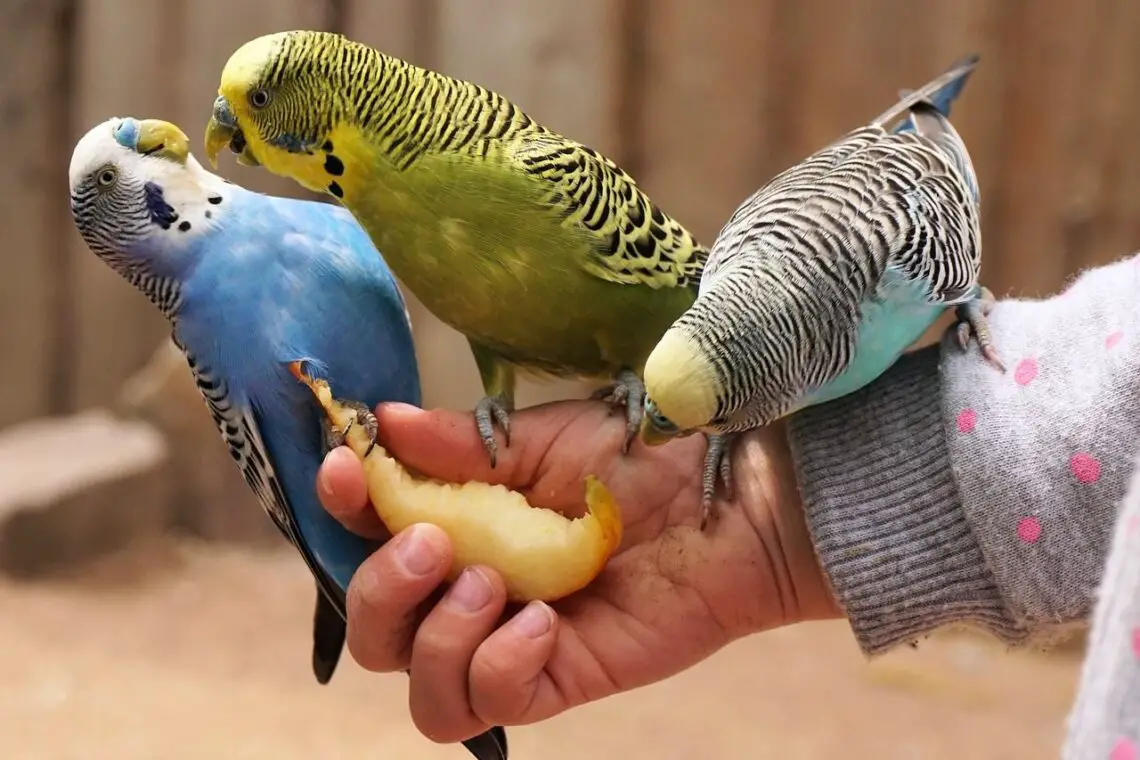
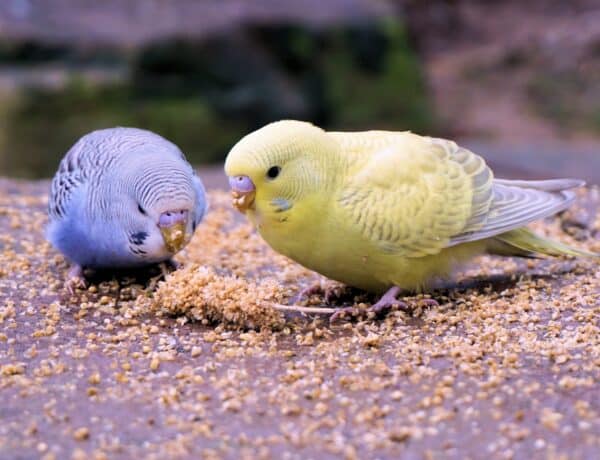
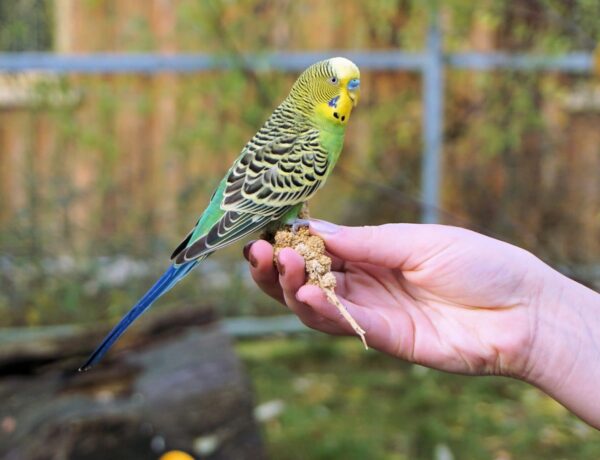
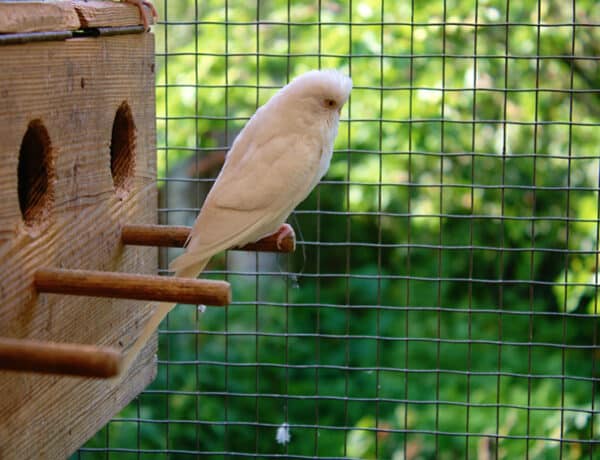
No Comments